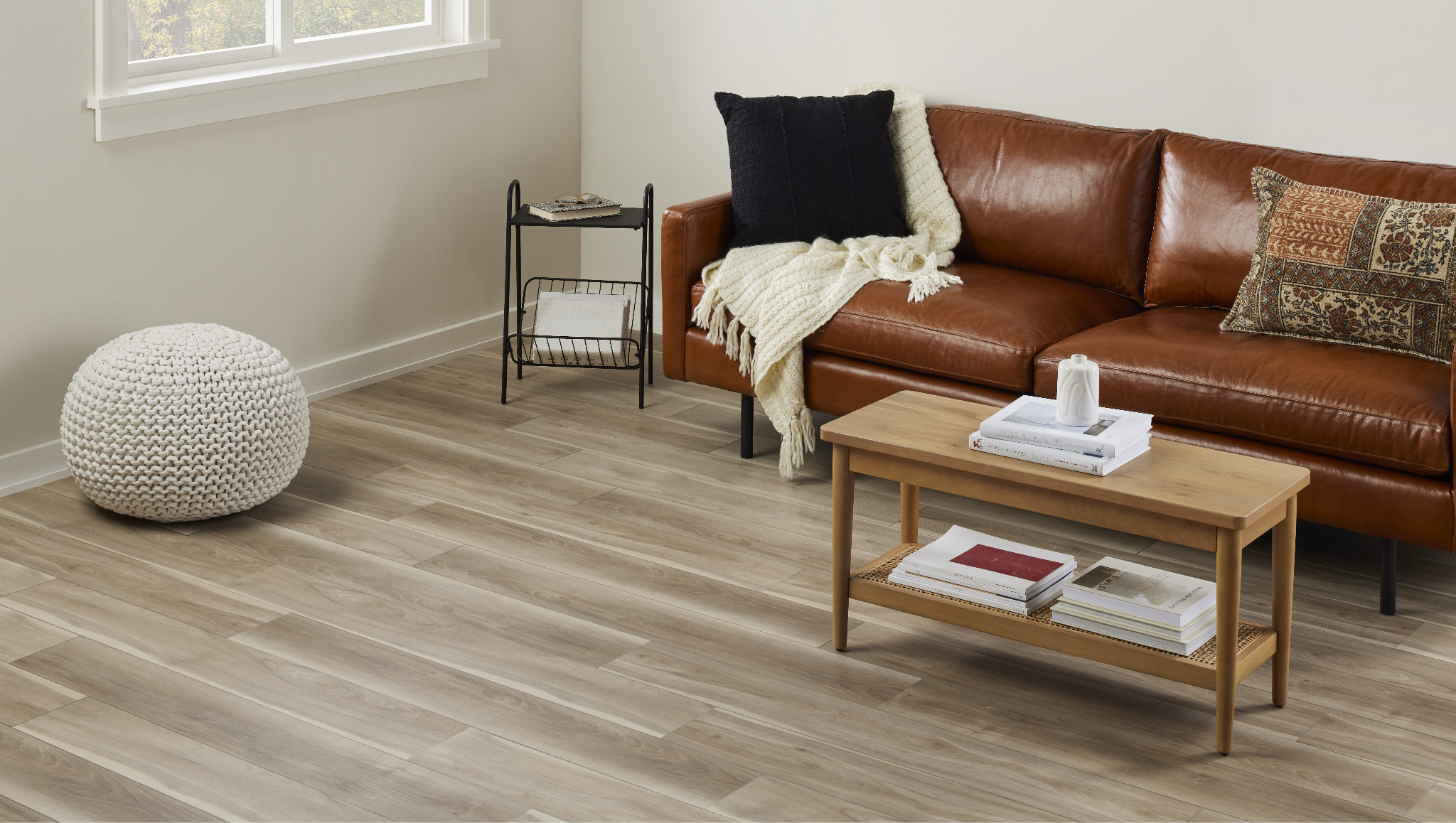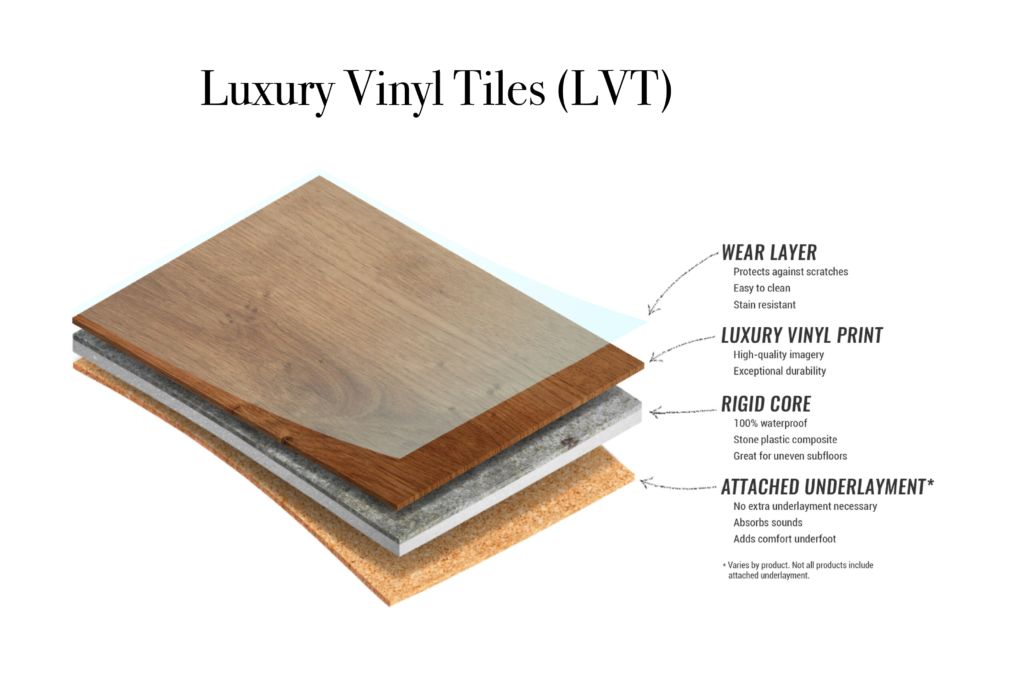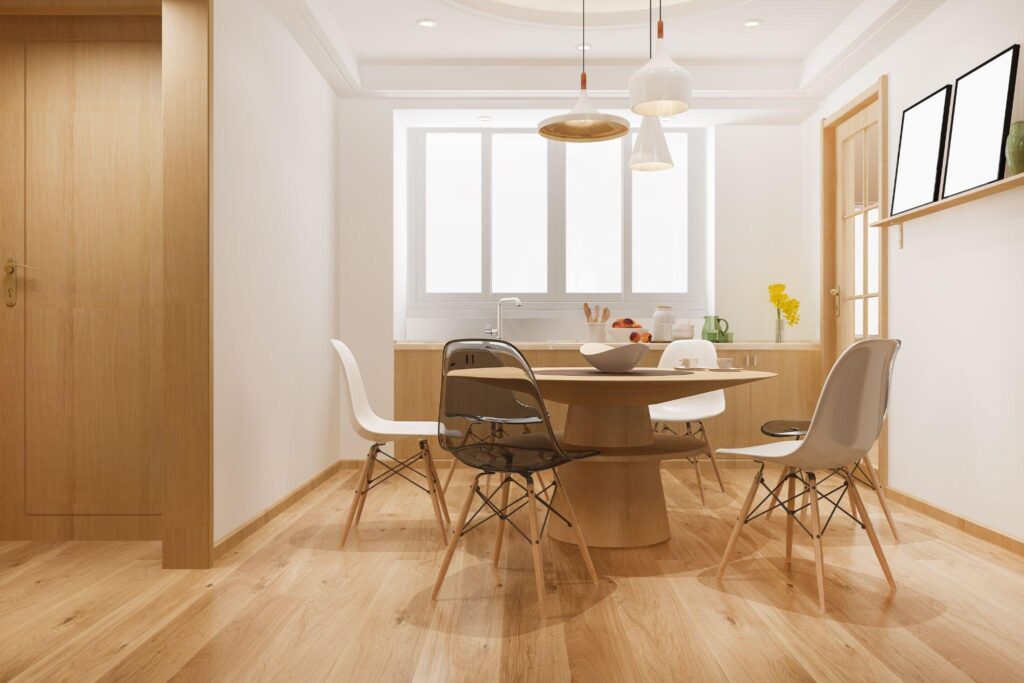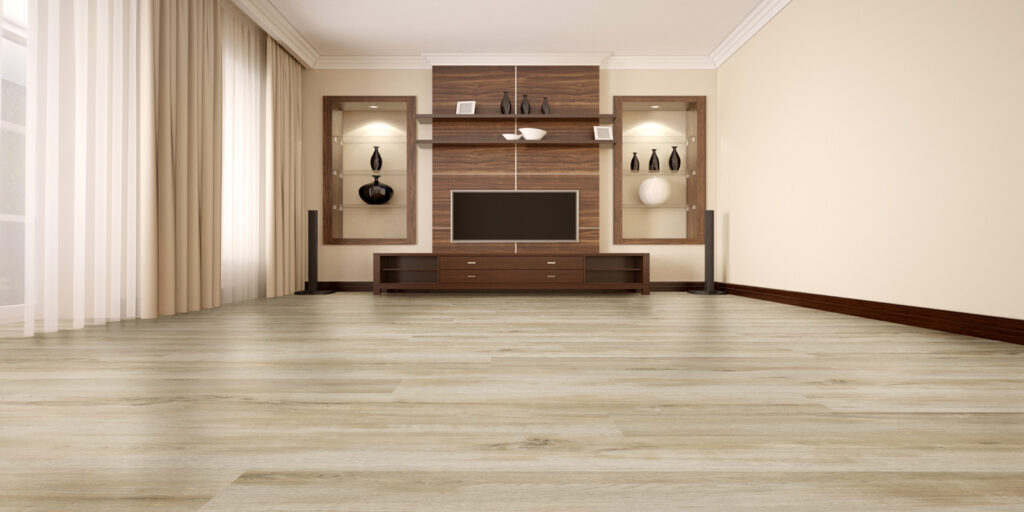Not all flooring materials are equal, and the best choice for you depends on your budget, desired features, aesthetic preferences, and the location of installation. In this article, we will provide an unbiased analysis of SPC flooring, outlining its advantages and disadvantages to help you make an informed decision for your project whether it is for residential or commercial.
Wood flooring has evolved over time. Traditional hardwood flooring like parquet, is popular for its durability and the ability to refinish it. However, it is expensive to purchase, install, and maintain. Additionally, it requires specific humidity levels to prevent cracking, and it puts a strain on natural resources.
To address the demand for lower maintenance and more affordable alternatives to solid hardwood, engineered hardwood was introduced. While it reduced the maintenance requirements, it remained relatively expensive for consumers.
Laminate flooring emerged as a wood-like option by blending wood particles and featuring an image layer on top to imitate hardwood. Although high-definition prints and embossing techniques have improved its appearance, laminate flooring tends to swell with moisture.
Porcelain tile capitalized on the desire for wood-like floors and saw a growing trend in wood-look tile. While tile is durable and water-resistant, it has a cold and hard surface that may be uncomfortable for some. The installation process is more complex, involving mortar and grout.
Luxury vinyl tile (LVT) gained popularity as it mimicked wood floors and addressed the moisture issues of laminate. LVT is cheaper to install, offering floating floor click-system or glue-down options.
Another type of innovation in wood-like flooring is SPC, which stands for Stone Plastic Composite. SPC flooring is another type of LVT that is 100% waterproof and offers greater stability like traditional LVT.
SPC flooring consists of multi-layered floor planks. The core is made from a combination of stone powder and PVC plastic, resulting in a highly durable and dent-resistant material that remains unaffected by environmental changes.
One notable advantage of SPC flooring is its click-style installation system, which is significantly faster than traditional tile installation. It is a preferred option for DIY homeowners since it does not require glue or nails. The ease and speed of installation reduce labor costs, making SPC a cost-effective flooring choice. However, it may not be as durable as traditional tiles.
SPC planks generally consist of the following layers, although the specific composition may vary by manufacturer:
- UV layer: Provides stain resistance, waterproof performance, and prevents fading.
- Wear layer: Preserves the authentic color and embossing while protecting against abrasion.
- Decorative layer: Displays the printed wood-like pattern.
- SPC Core: The durable and rigid core of the plank that does not expand or contract with temperature or humidity changes.
- Bottom layer: May include cork or foam backing to provide some underfoot cushioning.
Pros of SPC flooring:
- 100% waterproof.
- Low installation cost, making it affordable for DIY projects or reducing expenses for professional installation compared to tiles.
- Easy installation with a click system, requiring minimal tools, wait time, and effort.
- Versatile aesthetic options, offering a wide range of patterns, colors, and grain appearances.
- Some SPC products are compatible with radiant heating systems.
- Environmentally friendly, as it reduces the use of real wood and can be recycled.
- Enhances air quality by being free from harmful chemicals like formaldehyde, glues, benzene, and phthalates.
- Provides some natural soundproofing due to its multi-layered composition.
- Generally comes with manufacturer warranties, with the warranty length increasing with the thickness of the wear layer and core of the planks.
Cons of SPC flooring:
- Not highly scratch-resistant. While the core is durable, the wear layer on top may show noticeable scratches with extensive use. It is suitable for regular residential and light commercial use but not recommended for high-traffic commercial areas.
- Thinner material lacks the same level of underfoot cushioning as hardwood or laminate.
- Requires installation on a flat floor surface, although thicker planks are more forgiving on slightly uneven surfaces.
- Unsuitable for outdoor installation.
- The price can increase with additional features such as thicker layers, specific prints, or enhanced UV resistance.
- Not fade resistant, especially in areas with significant natural light exposure. Not recommended for sunrooms.
- Does not provide the same value as solid hardwood, which may affect the resale value of your home.
- Makes a clacky sound when walking on it.
SPC flooring is an excellent cost-effective choice for residential main floors, including kitchens, living spaces, and bathrooms, where normal wear is expected. It is also suitable for basements due to its waterproof properties, as well as secondary vacation homes or rental properties due to its low maintenance requirements and affordability for updating the look.
When selecting SPC flooring, the thickness of the planks is an important consideration. Thicker planks offer greater stability and comfort when walking. However, they come at a higher price and usually come with longer warranties. Thicker planks also accommodate slightly uneven surfaces better, although it is advisable to install SPC on a flat surface free of debris. Available options range from 3mm to 7mm thickness in the SPC floors Vinyl Flooring Singapore Ltd has to offer.




